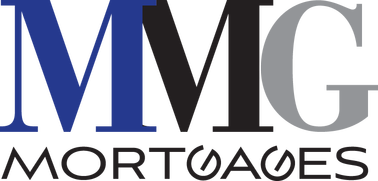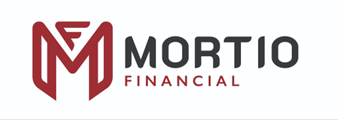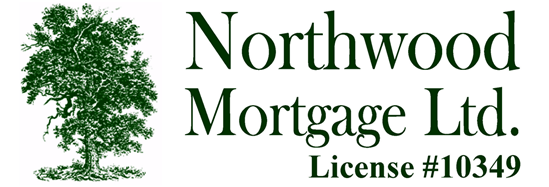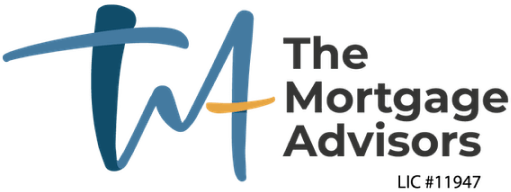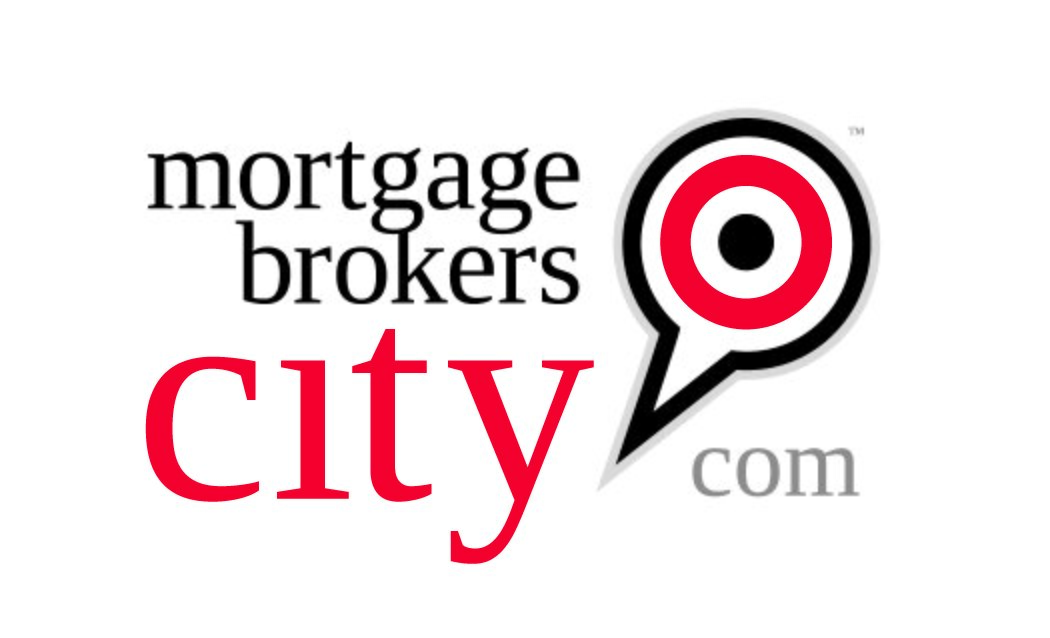The Best Current Mortgage Rates in North York, Ontario
Get 20+ mortgage quotes from top banks and lenders across Canada.
Today's Best Mortgage Rates in North York, Ontario
Evaluate North York’s best mortgage rates in one place. You can compare the most current mortgage rates and monthly payments from 175+ banks and lenders across Ontario.
Rates are based on an average mortgage of $500,000 and subject to change based on filter criteria.
| Lender
|
Insured
|
Insurable
|
Uninsured
|
|---|---|---|---|
|
MMG Mortgages
|
3.99%
$2,627.39 / month
|
4.19%
$2,681.85 / month
|
4.14%
$2,668.19 / month
|
|
Mortio Financial Corp
|
3.99%
$2,627.39 / month
|
4.24%
$2,695.56 / month
|
4.14%
$2,668.19 / month
|
|
Northwood Mortgage Ltd.
|
4.14%
$2,668.19 / month
|
4.24%
$2,695.56 / month
|
4.24%
$2,695.56 / month
|
|
Innovation Federal Credit Union
|
4.39%
$2,736.87 / month
|
4.39%
$2,736.87 / month
|
4.39%
$2,736.87 / month
|
|
True North Mortgage
|
2.99%
$2,363.66 / month
|
2.99%
$2,363.66 / month
|
2.99%
$2,363.66 / month
|
|
The Mortgage Advisors
|
3.87%
$2,594.98 / month
|
3.87%
$2,594.98 / month
|
3.87%
$2,594.98 / month
|
|
Nesto
|
3.91%
$2,605.76 / month
|
3.91%
$2,605.76 / month
|
3.91%
$2,605.76 / month
|
|
Hypotheca
|
3.94%
$2,613.86 / month
|
3.94%
$2,613.86 / month
|
3.94%
$2,613.86 / month
|
|
MortgagestoGo
|
3.94%
$2,613.86 / month
|
3.94%
$2,613.86 / month
|
3.94%
$2,613.86 / month
|
|
One Link Mortgage & Financial
|
3.95%
$2,616.57 / month
|
3.95%
$2,616.57 / month
|
3.95%
$2,616.57 / month
|
|
Sudbury Credit Union
|
3.99%
$2,627.39 / month
|
3.99%
$2,627.39 / month
|
3.99%
$2,627.39 / month
|
|
Monster Mortgage
|
3.99%
$2,627.39 / month
|
3.99%
$2,627.39 / month
|
3.99%
$2,627.39 / month
|
|
Northern Birch Credit Union
|
3.99%
$2,627.39 / month
|
3.99%
$2,627.39 / month
|
3.99%
$2,627.39 / month
|
|
The Police Credit Union
|
3.99%
$2,627.39 / month
|
3.99%
$2,627.39 / month
|
3.99%
$2,627.39 / month
|
|
City Wide Financial Corp
|
3.99%
$2,627.39 / month
|
3.99%
$2,627.39 / month
|
3.99%
$2,627.39 / month
|
|
Mainstreet Credit Union
|
3.99%
$2,627.39 / month
|
3.99%
$2,627.39 / month
|
3.99%
$2,627.39 / month
|
|
East Coast Mortgage Brokers
|
4%
$2,630.10 / month
|
4%
$2,630.10 / month
|
4%
$2,630.10 / month
|
|
Mortgage Brokers City Inc
|
4.04%
$2,640.95 / month
|
4.04%
$2,640.95 / month
|
4.04%
$2,640.95 / month
|
|
Prospera Credit Union
|
4.04%
$2,640.95 / month
|
4.04%
$2,640.95 / month
|
4.04%
$2,640.95 / month
|
|
First Credit Union
|
4.29%
$2,709.29 / month
|
4.29%
$2,709.29 / month
|
4.29%
$2,709.29 / month
|
|
First National Financial
|
4.34%
$2,723.07 / month
|
4.34%
$2,723.07 / month
|
4.34%
$2,723.07 / month
|
Today's Best Mortgage Rates in North York
Evaluate North York's best mortgage rates in one place. RATESDOTCAs Rate Matrix lets you compare pricing for all key mortgage types and terms.
Rates are based on an average mortgage of $500,000 and subject to change based on filter criteria.
Updated 03:24 on Jul 12, 2025| Placeholder |
Insured
The rates in this column apply to borrowers who have purchased mortgage default insurance.
This is required when you purchase a home with less than a 20% down payment.
The home must be owner-occupied and the amortization must be 25 years or less.
|
80% LTV
The rates in this column apply to mortgage amounts between 65.01% and 80% of the property value. The home must be owner-occupied and have an amortization of 25 years or less. You must have purchased it for less than $1 million. These rates are not available on refinances. Refinances require "Uninsured" rates.
|
65% LTV
The rates in this column apply to mortgage amounts that are 65% of the property value or less. The home must be owner-occupied and have an amortization of 25 years or less. You must have purchased it for less than $1 million. These rates are not available on refinances. Refinances require "Uninsured" rates.
|
Uninsured
The rates in this column apply to purchases over $1 million, refinances and amortizations over 25 years. More info on the differences between insured and uninsured rates.
|
Bank Rate
Bank Rate is the mortgage interest rate posted by the big banks in Canada.
|
|---|---|---|---|---|---|
| 1-year fixed rate | 4.99% | 4.79% | 4.79% | 5.59% |
5.49%
|
| 2-years fixed rate | 4.04% | 4.34% | 4.34% | 4.54% |
4.79%
|
| 3-years fixed rate | 3.87% | 4.09% | 4.09% | 4.24% |
4.29%
|
| 4-years fixed rate | 4.09% | 4.15% | 4.15% | 4.44% |
4.39%
|
| 5-years fixed rate | 3.91% | 3.89% | 3.89% | 3.91% |
4.09%
|
| 7-years fixed rate | 5.19% | 5.00% | 5.00% | 5.19% |
5.00%
|
| 10-years fixed rate | 5.24% | 5.24% | 5.24% | 5.29% |
6.09%
|
| 3-years variable rate | 4.40% | 4.30% | 4.30% | 4.40% |
6.35%
|
| 5-years variable rate | 4.04% | 4.04% | 4.04% | 4.05% |
4.25%
|
| HELOC rate | N/A | N/A | N/A | N/A |
N/A
|
| Stress Test | 5.25% | 5.25% | 5.25% | 5.25% |
N/A
|
North York, Ontario's housing market
North York, a former city and township, is one of the six administrative districts of Toronto. Due to its proximity to Downtown Toronto through various transit options, North York attracts many homebuyers. North York is also home to significant institutions including York University, Seneca College of Applied Arts and Technology, the Ontario Science Centre, Black Creek Pioneer Village and the Ford Centre for the Performing Arts, as well as plenty of green space and parks. It is also home to renowned North York General Hospital and prior to amalgamation with Toronto, had the second-largest manufacturing base in Ontario.
The Don Valley Parkway, a 15-km-long expressway stretching from the Gardiner Expressway in Downtown Toronto to Highway 401, is one of the most vital transit arterial roads connecting the north and south ends of the city.
The communities comprising North York are Newtonbrook, Don Valley Village, Willowdale, Lansing, Bayview Village, York Mills, Don Mills, Glen Park, Downsview, Humber Summit, Humberlea, among others.
North York also boasts of Bridle Path, often referred to as “Millionaires Row” because of the presence of luxury homes there, including Canadian rapper Drake’s house. This exclusive enclave of luxury homes sells for well in excess of a couple of million dollars and is surrounded by the Don River Valley and lush parkland.
The Greater Toronto Area has witnessed home sales and the average selling price to be above last year’s June level. However, uncertainty still looms with the Bank of Canada increasing overnight rate and tightening borrowing costs. Home sales are expected to be hampered by higher borrowing costs, inflation and lack of inventory in the housing market. A resilient economy, tight labour market and record population growth kept home sales well above last year’s lows.
Following is a compilation of North York communities and the average selling price of houses in Q1 2023 in comparison with Q1 2022.
The average selling price of homes in the City of Toronto is $1,152,424 with 5,789 new listings in June 2023. Some communities of North York fall under the Toronto West neighbourhood and others come under Toronto Central. The average selling price of a house in Toronto West is $1,080,772, while in Toronto Central, the average selling price is $1,220,214.
Source: Toronto Regional Real Estate Board Community Market Reports
North York, Ontario’s mortgage market
The average monthly payments for new mortgage loans and average value of new mortgage loans in Toronto are reflective of how North York mortgage market has been doing as well, since it’s a part of the GTA.
The interest rates in North York were much lower in Q1 2022 compared with Q1 2023 as the Bank of Canada started its rate hike spree in the second quarter of 2022. The central bank has increased the overnight rate 10 times in a year, baffling the real estate market and burning a hole in the pockets of homeowners who pay mortgages. However, house prices have also significantly come down between Q2 2022 and Q2 2023 due to overall high inflation, interest rate hike and the real estate market did see a period of slump.
We have noticed a significant increase in monthly mortgage payments due to interest rate hikes by financial institutions to curb inflation starting in Q3 2022. Based on the above community-based data, we have derived the average mortgage value for Q1 2022 compared with Q1 2023. For an average house price of $1.3-million in Lansing-Westgate community of North York, and at 5.55% 5-year variable interest rate, 20% down payment, 25-year amortization, the average monthly mortgage payment would be $6,378. This is significantly higher than when average house price was $1.46-million in Q1 2022, with 20% down payment, 25-years amortization period, calculated at 1.15% 5-years variable interest rate, the average monthly was $4,480.
Tips for First-Time Home Buyers in North York, Ontario
First time home buyers have a lot of information to take in and sometimes that can be a bit overwhelming. Becoming a homeowner for the first time can be a challenging yet exciting phase in your life and it’s sensible to get as much information as possible before you start that journey. Consider all costs before buying your first condo or house. According to CMHC, your entire monthly debt load should not be more than 44% of your gross monthly income. This includes your mortgage payments and other debts like car or student loans.
The Government of Canada has a First-Time Home Buyer Incentive that helps people across the country to purchase their first home. This incentive offers 5% or 10% of the property’s purchase price to put toward a down payment.
This helps prospective buyer to lower the mortgage cost, making homeownership more affordable. The incentive aims to help first-time home buyers to purchase their first property with the intent to occupy the place and investment properties are not eligible.
Only Canadian citizens, permanent residents and non-permanent residents with a legal work permit can avail this incentive.
For a first-time homebuyer to avail this incentive, the maximum qualifying income for Toronto, Vancouver and Victoria is $150,000 per annum. For all other housing markets, the maximum total qualifying income is $120,000 per annum.
The eligible residential properties include new construction, re-sale home, new and re-sale mobile homes, with the residential properties can include 1 to 4 units. The types of properties included in this incentive are single family homes, semi-detached homes, duplex, triplex, fourplex, town houses and condo units.
The first-time homebuyer would have to repay the Incentive amount after 25 years, or when the property is sold, whichever comes first.
The homebuyer could also repay the Incentive in full at any time, without a prepayment penalty.
The First-Time Home Buyer Incentive program has been extended by the government to March 31, 2025.
Frequently asked questions about mortgages in North York, Ontario
Find answers to all your North York-related mortgage questions here...
How much can I save by comparing the current North York mortgage rates?
Financial institutions offer more-or-less the same mortgage rates within the province and across the country and mortgage rates in North York would be reflective of that. Mortgage rates are affected by the change in overnight rate by the Bank of Canada and prime rates of financial institutions.
Using a mortgage rate comparison website like RATESDOTCA, can help you get the rate best suited for your financial situation. You can save hundreds of dollars by comparing rates offered by 50+ top Canadian lenders using RATESDOTCA.
Why should I compare North York mortgage rates with RATESDOTCA?
No two banks or lenders will offer you the same rate. The rate you are offered would depend on your financial situation as well as the bank’s prime rate. The best way to save some bucks on your mortgage is by comparing rates by different lenders. What’s a better way than comparing rates with RATESDOTCA where you can find 50+ top lenders in Canada competing for your business. You will see rates from top lenders like TD, CIBC, Scotiabank, Desjardins, RBC, National Bank and more, to help you decide better.
Are North York mortgage rates higher than other Ontario cities?
North York mortgage rates should resemble the rates of other communities in Toronto and in the province. However, lenders will also look at individual things such as your income, the property’s purchase price, the amount of financing you need and the location of the property.
What’s the difference between variable and fixed rate mortgages?
One of the most essential factors to consider while buying a home is what kind of mortgage suits your income, lifestyle, tolerance, and budget. Essentially, you will be looking at two types of products: variable and fixed rate mortgages. It’s not a bad idea to talk to your lender or other trusted professionals about the pros and cons of each, although there is no right answer here. The best choice is the one that works best for you.
What’s the difference?
Variable rate mortgages fluctuate based on a bank’s prime rate which is influenced by the Bank of Canada overnight rates (the rate that is used for banks to charge interest to one another). In these cases, your regular scheduled payments remain the same but the amount you pay in interest can fluctuate. While interest rates were at historic lows, variable rate mortgage holders were paying less than their fixed-rate cousins. As rates have climbed, that scenario has changed. If you have an adjustable-rate mortgage, your monthly payments on your mortgage go up if the prime rate increases. Monthly payments will go down if the prime rate decreases.
In fixed rate mortgages your interest rate will stay the same for the duration of the mortgage term. In many cases the five-year fixed rate is the most popular among homebuyers but there are three and 10-year options as well. Unlike variable rate mortgages, you have greater peace of mind knowing what the fixed cost is for the term of your mortgage. The lack of fluctuating rates can help you budget more efficiently.



